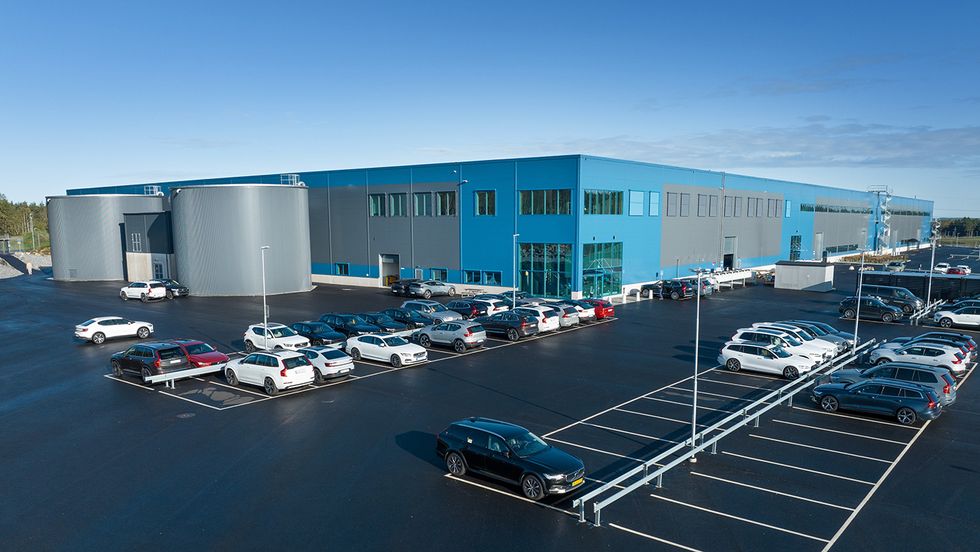- Volvo launches its main software development and testing center in Gothenburg, Sweden, in one of the biggest investments in the automaker’s history.
- The new center will act as a flagship for all of Volvo’s Tech Hubs around the world, which now include locations in Singapore, Krakow, Shanghai, and Lund.
- With the Volvo EX90 on the way, after some delays, Volvo is preparing to debut its electric flagship to pave the way for an EV-only lineup by the end of the decade.
Tesla has at times been described as a software company that just happens to build cars, and a decade after its emergence on the scene its competitors are still quietly envious of how far ahead it still is in this sphere. Over-the-air updates are still spoken of by other automakers as something new and transformative, while they’ve been a regular part of the Tesla experience for years.
And “software-defined vehicles” is just one of the new terms that other automakers have devised to describe what’s happening in the world of cars, all while established auto shows continue to rapidly evolve into “mobility” events.
Highlighting the growing importance of software in the car world, Volvo has revealed one of the biggest investments in its entire history: a new software center near its home in Gothenburg, Sweden—one that will act as the flagship for all of the automaker’s Tech Hubs and engineering centers around the world.
Volvo currently has software centers in Shanghai, China, and Lund, Sweden, and a new tech hub has been opened in Singapore just last month, ahead of yet another planned hub in Krakow, Poland.
But the new Gothenburg facility will serve as the main development and testing center for the automaker, employing around 100 people.
“This is a state-of-the-art facility that will be the hub for our global software testing and validation activities,” said Anders Bell, Volvo’s Global Head of R&D. “Developers from all our global engineering sites and Tech Hubs can run software tests here remotely, 24 hours a day, 365 days a year. I firmly believe that with this new testing center, we’ve set a new benchmark for the automotive industry.”
Why is this happening now?
The Volvo EX90 is about to arrive, and it will be positioned as the automaker’s electric flagship for the foreseeable future. The debut is now just a few months away, with the EX90 expected to be a milestone for Volvo’s software-defined vehicles, as the automaker describes them.
Volvo’s smallest EV is on the way as well, with the EX30 set to arrive in 2024. And it could be a much bigger hit in the marketplace when it comes to sales, designed to be a very affordable way to get into an EV.
But looking out across an extended timeline, Volvo is transforming itself into a software-defined automaker, with plans to offer only electric models by 2030.
“The aim is to boost our innovation speed by developing software for key areas for Volvo Cars—from core safety technology based on our deep understanding of what causes accidents, to our perception and driver-assistance algorithms and software for future autonomous driving,” said Alwin Bakkenes, Volvo’s Global Head of Software Engineering.
The importance of software development became abundantly clear recently for one of Volvo’s competitors in Europe and in China, with the Volkswagen Group seeing several major EVs for a number of brands, including Porsche, delayed by entire years due to issues experienced by its in-house Cariad software division.
So as much as software-defined vehicles can seem like a marketing slogan, it can also be painful for an automaker when this one aspect of vehicle engineering experiences delays. And years of delays in the EV sphere can amount to lost market share, as automakers launching electric vehicles only now are finding out.
“The Volvo car of the future is fully electric, increasingly sold online, powered by cutting-edge core computers running in-house-developed software and constantly improves over time thanks to regular, over-the-air software updates,” the automaker added.
Will Volvo be able to switch to an EV-only lineup by 2030, or will actual demand from customers in various markets force a different outcome, in which Volvo will keep some ICE models? Let us know what you think.

Jay Ramey grew up around very strange European cars, and instead of seeking out something reliable and comfortable for his own personal use he has been drawn to the more adventurous side of the dependability spectrum. Despite being followed around by French cars for the past decade, he has somehow been able to avoid Citroën ownership, judging them too commonplace, and is currently looking at cars from the former Czechoslovakia. Jay has been with Autoweek since 2013.

